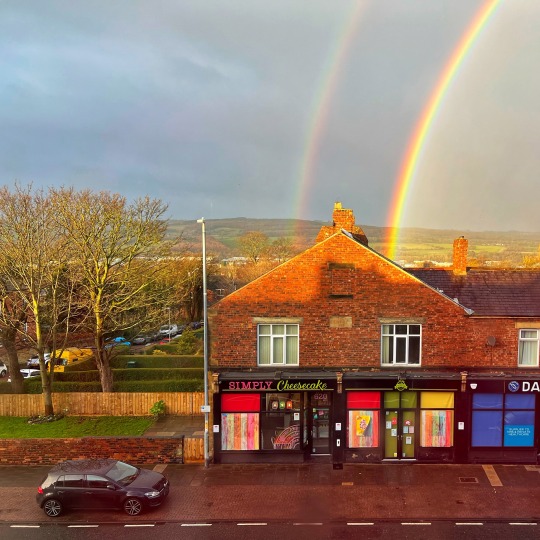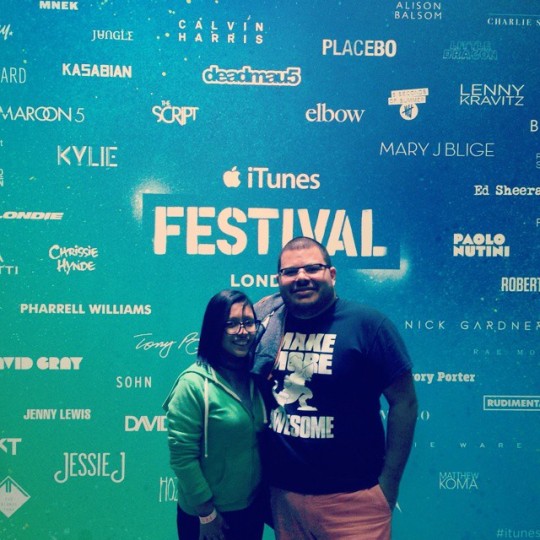things and thoughts I find relevant to me life as a digital nomad. Gibert Corrales CEO @ Leaf
Don't wanna be here? Send us removal request.
Text

0 notes
Photo

Happy CNY! let this year of the 🐯be full of prosperity and happiness. Let the 🧧rain with love.
5 notes
·
View notes
Video
Today Huawei unveiled their new P50 Pocket, with it comes an external display with smartwatch-like functionality, and for the first time in the foldables I can see a proper use for that tiny window on the outside.
Now, image your Samsung foldable with WatchOS on it, or an iPhone with WatchOS on it, not only makes tons of sense, it means from the get-go you get a lot of apps already supporting it.
0 notes
Text
Video explainers or product video ads are often difficult and getting everything you want to convey in one simple way even more, but here is an explample or a perfectly crafted video that explains a very cool (and dare to say useful) product. Enjoy!
youtube
1 note
·
View note
Photo

The best way to end a hectic day #SofarDublin /via @leaf.fm (at Lost Society Dublin)
0 notes
Photo

2 short days packed of investor meetings and mentors, finished. #startuplife in #london (at St Pancras International)
1 note
·
View note
Text
ZERO TO ONE: My Personal Notes on the Book
Note: Zero to One is Peter Thiel's book on startups and product development. It's also one of the best books I've read. These here are some highlights from my read of the book and I've post them as a reminder to myself. Once you are done with this post, buy the book.
ON COMPANIES
All Happy Companies are Different
All happy companies earn a monopoly by solving a unique problem.
All failed companies are the same: they failed to escape competition.
Competition is a destructive force
Recognize competition as a destructive force instead of a sign of value.
Rivalry causes us to overemphasize old opportunities and slavishly copy what has worked in the past.
If you focus on near-term growth above all else, you miss the most important question you should be asking: will this business still be around a decade from now? Numbers won’t answer; instead you must think about the qualitative characteristics of your business.
Escaping competition will give you a monopoly, but even a monopoly is only a great business if it can endure in the future.
Futures
The most valuable businesses of coming decades will be built by entrepreneurs who seek to empower people rather than try to make them obsolete.
If humans and computers together could achieve dramatically better results than either could attain alone, what other valuable businesses could be built on this core principle?
ON MONOPOLIES
Every monopoly is unique, but they usually share some combination of the following characteristics:
1. Technology
Proprietary technology must be at least 10 times better than its closest substitute in some important dimension to lead to a real monopolistic advantage.
2. Network effects
Network effects make a product more useful as more people use it.
The most powerfully growing products do three things at once:
They make you look smart to the people you invite.
They give real value to you when the people you invite join.
They give real value to the people you’ve invited once they sign up.
3. Economies of Scale
A monopoly business gets stronger as it gets bigger: the fixed costs of creating a product (engineering, management, office space) can be spread out over ever greater quantities of sales.
A good startup should have the potential for great scale built into its first design: therefore not needed too many customized features to gain users.
4. Branding
A company has a monopoly on its own brand by definition, so creating a strong brand is a powerful way to claim a monopoly.
ON BUILDING A MONOPOLY
Start Small: Target Market
The perfect target market for a startup is a small group of particular people concentrated together and served by few or no competitors.
Any big market is a bad choice
A big market already served by competing companies is even worse.
A large market will either lack a good starting point or it will be open to competition, so it’s hard to ever reach that 1%. And even if you do succeed in gaining a small foothold, you’ll have to be satisfied with keeping the lights on: cutthroat competition means your profits will be zero.
Scale up
Sequencing markets correctly is underrated, and it takes discipline to expand gradually.
The most successful companies make the core progression— to first dominate a specific niche and then scale to adjacent markets— a part of their founding narrative.
Don’t Disrupt
If your company can be summed up by its opposition to already existing firms, it can’t be completely new and it’s probably not going to become a monopoly.
As you craft a plan to expand to adjacent markets, don’t disrupt: avoid competition as much as possible.
Distribution
Selling and delivering a product is at least as important as the product itself.
It’s better to think of distribution as something essential to the design of your product.
If you’ve invented something new but you haven’t invented an effective way to sell it, you have a bad business— no matter how good the product.
Sometimes the product itself is a kind of distribution.
If you can get just one distribution channel to work, you have a great business. If you try for several but don’t nail one, you’re finished.
Marketing and Advertising
Marketing and advertising work for relatively low-priced products that have mass appeal but lack any method of viral distribution.
Advertising can work for startups, too, but only when your customer acquisition costs and customer lifetime value make every other distribution channel uneconomical.
A product is viral if its core functionality encourages users to invite their friends to become users too.
ON PUTTING YOUR IDEA TO THE TEST
Seven questions every business must answer:
The Engineering Question. Can you create breakthrough technology instead of incremental improvements?
The Timing Question. Is now the right time to start your particular business?
The Monopoly Question. Are you starting with a big share of a small market?
The People Question. Do you have the right team?
The Distribution Question. Do you have a way to not just create but deliver your product?
The Durability Question. Will your market position be defensible 10 and 20 years into the future?
The Secret Question. Have you identified a unique opportunity that others don’t see?
ON TESLA
While generic clean tech companies struggled to differentiate themselves, Tesla built a unique brand around the secret that clean tech was even more of a social phenomenon than an environmental imperative.
Tesla’s greatest technological achievement isn’t any single part of component, but rather it’s ability to integrate many components into one superior product. Testa Model S sedan, elegantly design from end to end, is more than the sum of it’s parts.
REMEMBER
Doing something different is what’s truly good for society —and it’s also what allows a business to profit by monopolizing a new market.
Sometimes the best projects are likely to be overlooked, not trumpeted by a crowd; the best problems to work on are often the ones that nobody else even tries to solve.
5 notes
·
View notes
Video
youtube
I love advertising because I love lying...
- Jerry Seinfeld
0 notes
Text
Love for the Craft
if something could be learnt and copied from Apple should be to love the craft behind building your stuff and a big part of that comes by creating products that gives your users long term value for their investment.
this should be learn by those like Samsung who glamorously call out to Apple for "copying" what they have done before.
true, Samsung came first with a smart watch and with a big ass phone, but most of those first timers are useless by now; and yet my iPod from 3 years ago is still humming nearly as good as when I got it and with every single update that has come out since then, on the same day of the release.
v1 products are made worthless very soon these days, I wouldn't go buying any v1 product from any other company because I know they are all crap, and as of late it seem that neither are v2s or 3s. Look at Microsoft, its Windows Phone brand is on its 3rd iteration and we're already looking to a 3rd reset now with Windows 10. Surface? who knows if it will live after its current iteration. Not even Windows itself looks like has some stability.
to love for you craft means that you put as much attention to the making as to the using. you go studying how your products will make a difference in someone else's life and strive for it.
if the only reason you wake up in the morning is thinking you got to bit Apple then I suggest you should find a new way of living, because unless you start building for yourself and your users, you will never will be able to compete in the same camp as them.
0 notes
Photo

Hay q dejarse varas, el mae es buen cantante jajaja (at Roundhouse)
0 notes





